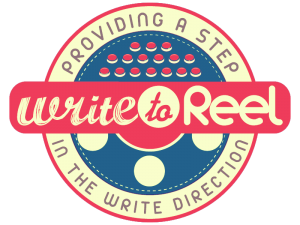An excerpt from my script review for Where the Crawdads Sing which will be available 09/19/22:
2.) Plot Stability
This was an enjoyable read.
Was it the most revolutionary script or story my eyes will ever be graced with?
No, but I was surprised to find a Rotten Tomatoes score of only 33% for the critics, when general audiences gave it a 96%.
This feels like an example of professional critics missing the mark on what the “common” public is looking for in entertainment.
The main issue seemed to be the “whitewashing” of the Carolinas during the late 1950s and early 1960s.
So is the argument that the script didn’t deal with the racial equality struggle enough? Even if that wasn’t part of the story?
Maybe the above video isn’t the exact issue we’re talking about here, but is the industry, and the critics therein, demanding too much “wokeness”?
Kya is a poor white girl who lives out in the marshlands.
And that’s what the story deals with, her being part of a poor white family and the only one who stays behind by herself to live there.
This swamp setting and community was interesting to this reader who hasn’t read the book.
Was there racial injustice in the South during this same time period?
Absolutely, but to not include it in this story shouldn’t be a crime.
In fact I’d argue including it when it has nothing to do with the story would be the truer problem, because the story isn’t about that.
(And the writers shouldn’t be chastised for not including it.)
For instance, Kya relies heavily on Jumpin’ and Mabel for a source of income, via selling fresh mussels, but during one of these trips would it have been “better” to have one of the white townsfolk shout the N-word at them, or better yet, lecture Kya on dealing with “colored” folk?
Is it a plausible situation? Probably, but it’s not like the author was painting this town as some sort of social utopia.
Or when Kya’s on trial, and they’re talking to the bus drivers, figuring out timeframes Kya could have come back to commit the murder, should there have been a specific flashback where she makes a stand about it not being fair black folks are required to sit in the back of the bus?
Should we make her part of a boycott? Dedicating extra pages to an already oversized script when it doesn’t deal directly with the plot?
The answer should be no.
You include the plot and scenes that are crucial to telling your story.
By all means, if you want to explore a narrative inside the Civil Rights Era, more power to you, but what you shouldn’t be doing is shoehorning in political topics/beliefs that don’t deal with it just to score points as some sort of social justice warrior.
Other than that, we’ll discuss the main plot in the next section, as who the characters were drove this story forward.
But one last note here, I didn’t mind the jumping back and forth between the past and “present” in this story. The one thing to be careful of is to mind how you do it and always label scene headings appropriately so the reader doesn’t get lost, especially early on.
Want EARLY access to our videos, uploads, and movie/script reviews? Members get them FIRST! Follow this link to our Discussion Forum.





